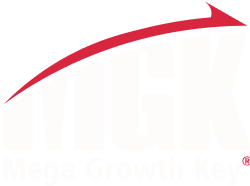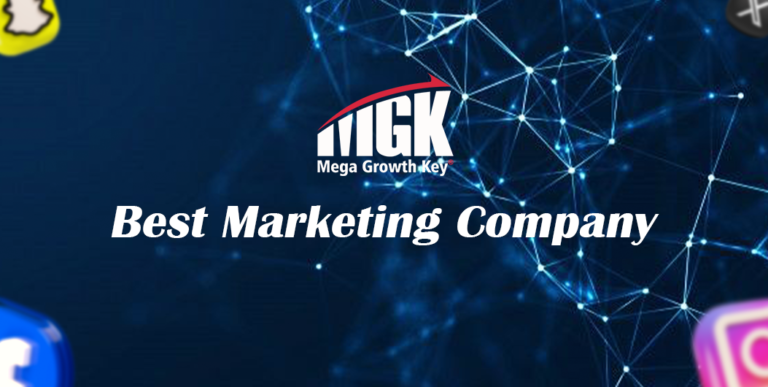Social Media Content Management: How to Build Strong Engagement with Your Audience
In today’s digital world, managing social media accounts has become an essential part of any brand’s marketing strategy. If you’re looking to build strong engagement with your audience and increase brand awareness, effective social media management can play a key role in achieving this goal. This article will explore how to build robust engagement on social media platforms and provide examples of successful campaigns executed by MGK.
Why is Social Media Account Management Important?
Social media account management involves planning, creating, and posting brand-appropriate content on various social media platforms. The primary goal is to reach your target audience and build interactive relationships that enhance brand presence. Through good planning and effective social media management, any company can strengthen its digital presence and achieve tangible returns.
Key Steps to Building Strong Engagement on Social Media
Define a Content Strategy Before creating content, you need a clear plan for what you aim to achieve on social media. This strategy should include:
Clear Goals: Are you looking to increase followers, boost engagement, or promote specific products?
Target Audience: Identify your target audience and their interests.
Content Type: What type of content is best suited for your audience? Videos, images, text, or a mix?
Use Social Media Management Tools There are numerous social media tools available that help you manage your accounts effectively. These tools allow you to schedule posts, monitor engagement, and respond to audience comments efficiently. Some popular tools include:
Hootsuite: For managing multiple accounts and monitoring engagement.
Buffer: For content planning and scheduling.
Sprout Social: For performance tracking and engagement analysis.
Using these tools can save time and effort and enhance account performance.
Create Content that Engages the Audience To keep your audience engaged, you need to provide valuable content that is:
Visually Attractive: Visual content grabs attention on platforms like Instagram and Facebook.
Interactive: Ask questions, create polls, or hold contests to boost engagement.
Relevant: Content that resonates with your audience’s interests increases the chances of engagement.
Analyze Performance and Improve Your Strategy After publishing content, monitor its performance to understand what works well and what needs improvement. You can use analysis reports provided by social media platforms or tools like Sprout Social to assess performance. This helps refine your strategy over time and ensures desired outcomes.
Successful Campaign Examples from MGK
- “Seasonal Products” Campaign on Instagram MGK designed a campaign on Instagram to promote seasonal products. Using eye-catching images and special offers, the campaign attracted many new followers and boosted sales. The key to success was using great visual content and targeted seasonal offers that resonated well with the audience.
- “Brand Awareness” Campaign on Facebook MGK launched a campaign to increase brand awareness by posting short videos showcasing products in a fun and creative way. The campaign received millions of views and comments because it offered light, entertaining content that was easy to share.
- “Share to Win” Contest on Twitter MGK initiated a simple yet effective contest on Twitter where participants had to retweet a post to win a prize. The result was widespread engagement and brand visibility—an excellent example of leveraging simple interactions for big results.
The Role of Social Media Tools in Performance Improvement
With tools like Hootsuite and Buffer, MGK was able to schedule content in advance, allowing them to focus on live audience engagement. These tools also enabled fast performance monitoring and strategy adjustments based on available data.
Social Media Account Management Pricing
Social media account management costs vary depending on factors like the number of accounts, content type, and service level (such as reporting, analysis, and strategy creation). It’s essential to identify your needs before seeking a management company.
What is Social Media Account Management?
Social media account management is the process of organizing, planning, and executing communication strategies across social media platforms to build a strong digital presence, engage with the audience, and increase brand awareness. It also includes monitoring engagement, responding to follower comments, and creating performance reports.
How to Manage Social Media Accounts?
To manage social media accounts effectively, you should:
- Clearly define your goals and strategy.
- Create engaging content tailored to your audience.
- Use management tools like social media platforms to plan and schedule posts.
- Continuously analyze performance and adjust your strategy based on results.
What Are the Responsibilities of a Social Media Account Manager?
A social media account manager is responsible for:
- Planning and creating content for social media platforms.
- Interacting with followers by responding to comments and messages.
- Monitoring and analyzing performance using social media tools.
- Providing regular progress and performance reports to ensure goal achievement.
What Does Social Media Account Management Mean?
Social media account management means having complete control over all aspects of the account, from content posting and engagement monitoring to performance analysis and strategy adjustment. The ultimate goal is to build a strong digital presence and attract the target audience.
Managing social media accounts requires precise planning, skillful execution, and a clear communication strategy. By using the right tools, creating interactive content, and monitoring performance, you can build strong and sustainable engagement with your audience. MGK’s experience with successful campaigns is proof that creative thinking and continuous analysis are the keys to success in social media management





